DevOps State of Mind Podcast Episode 3: DevRel and DevOps, Two Peas in a Pod
LogDNA is now Mezmo but the DevOps State of Mind podcast that you know and love is here to stay.

Liesse Jones: Joe Karlsson is a senior developer advocate at SingleStore. SingleStore has a highly scalable SQL database that delivers maximum performance for transactional and analytical workloads, all with familiar relational data structures. Joe collaborates with teams across the company to amplify developers' voices and provide support for multiple audiences. Today, we're going to talk about cross team empathy and why DevRel and DevOps work hand in hand.
Welcome to DevOps State of Mind, a podcast where we dive deep into the DevOps culture and chat with friends from small startups and large enterprises about what DevOps looks like in their organizations.
I’m Liesse from LogDNA. Join us as we get into a DevOps State of Mind.
Liesse Jones: Hey Joe, thank you for being here!
Joe Karlsson: First of all, I just want to say that intro is so good.
Liesse Jones: Thank you. Thank you.
Joe Karlsson: People ask me to introduce myself and you just did it better than I've ever done it ever in my life.
Liesse Jones: You can steal this and use it for future.
Joe Karlsson: Yeah, I will. What was that again? Um, no, that was so good. Also, when I'm doing intros, I feel like I become manic. I just start racing through it. It was just so good. I'm taking notes here. I'm learning about how to run a podcast here.
Thank you so much for having me. This is a blast. I'm just excited to be here and just chit chat about DevOps and data and empathy and —
Liesse Jones: All the things!
Joe Karlsson: Everything. Yeah. Well maybe not everything, but a lot of things.
Liesse Jones: We'll give the audience a little juice for their squeeze.
Okay, so let's start just by level setting. Can you tell the audience a little bit about SingleStore and what y'all do over there?
Joe Karlsson: I actually pretty recently joined SingleStore, but we're a database. We’re MySQL wire compatible. So if you’ve ever used MySQL, we’re perfect for you. And basically what makes us different is we're great for handling real-time data analytics. So, if you're doing data streaming, it's amazing. We have this proprietary columnar store that works with transactions, but also running massive analytics. So anyway, if you are running an old school database and running into issues and you're scaling up your old time data, look into SingleStore.
Liesse Jones: Just to dive a little bit more into data, I feel like data is a really broad term. We talk a lot about data at LogDNA as well, obviously.
Joe Karlsson: What is data? What is art? I don't know.
Liesse Jones: We could spend a lot of time on this. I spend 90% of my time thinking about log data and how to talk about that, how people extract value out of it, you know, there's a lot of stuff. But for you, can you just explain what you mean when you say data and maybe some advice that you would give someone who wants to think about using their data to enable DevOps?
Joe Karlsson: Can I just say, first of all, I think you and I, we need to get paid more. I think log data and data is not the funnest thing to talk about. And it's not the exciting thing devs brag about like, “oh, we've got the coolest log system set up.” Like, that's not something you ever hear anyone bragging about.
Liesse Jones: We try!
Joe Karlsson: Yeah, I think we can do it. I think you're doing a great job. But, yeah, what do I mean by data? I guess I could talk specifically about SingleStore. I know our data tends to be streaming data. If you're using Kafka [or] any data that's flowing through in real time is a really great use case for it. Streams. It can really mean anything.
Specifically for us, it's an RDBMS. Really it's a relational database management system. So anything that's a good fit for relational data structures works well for us. You know what, I think that I'm seeing a trend here in databases. Everyone's claiming to be the general purpose modern database right now. And it's like, what the hell does that even mean? And, what's the difference? I think that's the hard part is distinguishing any of them. Everyone's telling you they're the silver bullet. They're going to solve all your problems. And like, “we'll save all your data no matter what.” Probably not true.
Liesse Jones: I mean, you can save it, but what are you going to do with it?
Joe Karlsson: Exactly! For real, that's key. Like, how are you going to query this? And I think that's a huge part, you know, most systems are read-only. There are write-heavy systems too, but how are you using it? And you probably need it decently quick, like a three hour query runtime is probably not going to work. Maybe it’s just for niche analytics purposes, but [for] most modern systems that's not gonna fly. So, I think that's hugely important in your architecture and database story is super important—or log system.
Liesse Jones: Totally. And then also tying it to who the data consumers are and what they actually need to be able to do with it and the systems in which they use that information, is really important. And I think it's actually super cool to see how the industry is evolving to think about those different data consumers right now. And kind of a pushback on this concept of just, “as my production of data increases, I just need a bigger bucket to store it all.” I think people are kind of—their BS meter is starting to go off a little bit.
Joe Karlsson: I totally agree. And we're in the industry where the demands for logs and data is only going to increase. It's still the wild west days of understanding how to do this. And we're in a massive transition point in understanding what the future of data and data processing is going to look like... who knows.
Liesse Jones: For sure. It's exciting times.
Joe Karlsson: I think it's cool. I think it's exciting. I kind of fell into this data world and—I don't know—for me personally, data needs are not going anywhere. Every year, they're just exponentially growing. And sorting through that data is a problem that machine learning is poised to solve, but it still needs a human touch on it and architecting and scaling that up is still gonna be a thing that we need for a long time. Who knows. Maybe not forever, but, when the machines finally take over maybe they'll finally start automating our databases and data logs or whatever, but I think it's huge for right now.
Liesse Jones: For sure. People are excited about that though. They're like, “tell me about the AI capabilities.”
Joe Karlsson: People like it when computers act like humans, it's fun.
Liesse Jones: I don't think It's doing exactly what you think it's doing yet.
Joe Karlsson: It isn’t. No, no, no. I think still to this day, the AI promises are still overblown. I think we're starting to reign it in a little bit from a couple of years ago, but we're realizing that the promises that were made maybe weren't as accurate as we thought they were. I remember self-driving cars were supposed to be a thing like five years ago and we're still waiting for it. Watson famously over promised its medical AI abilities. I dunno. You know what I mean?
Liesse Jones: Interesting things to think about. Also, I feel like it's easy to get a little bit over your skis with how much you can accomplish in what period of time. So I genuinely think that a few years ago they thought that AI would be a bit more advanced than it is.
Joe Karlsson: “It'll be ready by then, I promise.” Well, we'll see. It's good, it’s just not quite there yet. We haven't had a big breakthrough in AI and ML right now for a while. Also, take everything I say with a grain of salt, I'm just vaguely touched in. I'm not like an AI machine learning guy.
Liesse Jones: Everybody's going to be coming at Joe Karlsson on Twitter. Elon’s like, who is this Joe guy? He's just talking out of his ass.
Joe Karlsson: No, I have no idea what I'm talking about.
Liesse Jones: I love it. Well, you touched on something really important, which is this human aspect and that's a lot of what I think you do working in developer advocacy. I would love to just dive a little bit deeper into what DevRel looks like at SingleStore. I know that it can look super different from one organization to another. So if you could just tell us a little bit about that, that'd be awesome.
Joe Karlsson: Yeah, totally. I know, it's one of those things. I remember taking career quizzes when I was in high school and this was not a job that existed when I took those in high school, which is kind of cool. And I remember them telling me, there's going to be jobs that don't exist right now. I'm doing that right now.
And you're totally right. Even if you ask the developer advocates within a company what their job is, or what it is, you're going to get different answers. And it varies wildly from company to company. In my humble opinion, [you can] break it down into three different categories:
- There's the community focused developer advocate.
- There's a product focused developer advocate, who's working on giving feedback and working with the community to figure out what to build, or resolving issues, or managing GitHub requests or whatever.
- And the third one is content-focused developer advocates.
I personally consider myself down the content alley. So that means I'm producing videos and speaking on podcasts like yours, I'm speaking at conferences, I do a lot. We wear a lot of different hats. It's really vague and weird. I've been writing documentation and consulting with the docs team for reviews recently. I've been working on teaching about how to talk to developer audiences internally. I worked on a keynote recently. It just really depends. If you have a really short attention span, like me, it works really great ‘cause you're gonna be doing a lot of fun stuff, wearing a lot of hats. If you don't thrive in chaos or get nervous talking in front of people, this may not be great [for you]. There are jobs though that you don't have to be a public speaker. Like I mentioned, community managers, you're just more facilitating the community growth. Anyway, TLDR I just make cool shit for developers. That's all I do.
Liesse Jones: Love it. I'm obsessed with that. What is your favorite project that you've worked on lately?
Joe Karlsson: Ohh yeah.
Liesse Jones: I’m throwing a curveball.
Joe Karlsson: So I just started at SingleStore, like eight weeks ago.
Liesse Jones: Oh, so new, okay.
Joe Karlsson: I know—still new. This is not related to work—I've just been doing like onboarding stuff and I've been producing some dumb videos or whatever, but, well not dumb, they're amazing. You should totally check them out.
Liesse Jones: Link in show notes!
Joe Karlsson: Yeah, absolutely. But my first Ted talk just came out, which I feel is pretty cool. You know, I didn't think that would ever happen, but I gave a little Ted talk on finding your community in tech and my journey through and helping others try to find that too. So that was a big personal deal for me. That was pretty recent, a couple weeks ago.
Liesse Jones: That's amazing.
Joe Karlsson: Yeah. Thank you. I agree with you. I'm biased, but I also agree.
Liesse Jones: Also, that’s something that I think a lot of people struggle with. And there's also so many people who are transplants into the tech industry from other industries, myself included. I actually went to school and worked in fashion and beauty for ages. So different than logs.
Joe Karlsson: You don't say.
Liesse Jones: Yeah, it's a little bit different. And I think that imposter syndrome is real. It's something people talk about a lot, but also that concept of finding your community and finding a group of people that you respect and that lift you up and that you lift up—that is just so important for human wellbeing, as well as career growth.
Joe Karlsson: Oh, I totally agree. I should mention too—for podcast listeners at home—I'm a CIS white man, which like I am the peak of privilege in this industry too. So take everything I say with a grain of salt. But I've heard it's very important—from people I've chatted with too—and personally for me, finding community has really helped me feel engaged. If you feel alone and if you don't work with people that look like you, I think that can make it a lot harder to.
We just need more diversity in tech in general, you know? So yeah, find people that inspire you, find cool things that make you love programming. It took me a really long time to really fall in love with it, but it wasn't ‘till I found a group of people that made me fall in love with it. I've just been trying to share that with the world ever since.
Liesse Jones: That's super awesome. So you told us kind of how you think about developer advocacy in general, the three buckets, where you fit in right now. How does this compare to other organizations that you've worked in?
Joe Karlsson: I mean, it's pretty much the same. The nice part about my job is all the work I do is very open. So my code is open source, all my videos are public on YouTube and I have a very public TikTok and Twitter presence—which by the way, you should follow me @JoeKarlsson on all platforms.
So all my stuff's up there and I feel like the last couple of roles I've gotten, it's just been from my work being on the ether so most people know what to expect when they bring me on board, which is great. It feels good. So anyway, TLDR people love what I'm doing and they hire me to keep doing what I'm doing, which is really, really lucky.
But yeah, it's about the same. I’m producing content, trying to help out where I can right now, too, especially in a new org. My goal right now is just trying to meet everybody, develop relationships, trying to show my value. ‘Cause we're new here. The thing that is different in my current role is developer advocacy is a new job function. It hasn't existed before. So not a lot of people know what I do and how to utilize me. So it's been a lot of work just getting around and showing value and helping and teaching and kind of doing that.
And then my next step here is [to] start outreach to the community too and make cool stuff ‘cause I'm still trying to develop a voice around it.
Liesse Jones: I have a question that is burning for me, but can we come back to the TikTok thing because I'm very interested to just talk about that and hear about it from your perspective and the content that you're creating there. So we'll put a pin in that.
Joe Karlsson: I've done a couple of tech things on there, and I just wrote a big document about the business value of TikTok too. Are you on there by the way?
Liesse Jones: I'm not. Oh, well, okay. I mean, I have a TikTok and I watch and consume.
Joe Karlsson: Lurking. Yeah.
Liesse Jones: I'm such a lurker.
Joe Karlsson: You understand the culture though? That's the key part.
Liesse Jones: For sure. When I joined, it was like they obviously targeted the groups to me that were for over 30 [year old] women. Which is really funny. And also that's the content that I consume on Instagram. It's all either tech stuff or like yoga, how to make a Buddha bowl, stuff about kids. It's hilarious to see how different the content that's targeted at me is compared to my male counterparts who work in tech and other things.
Joe Karlsson: Oh, totally.
One final note, I'm going to say from a business perspective I think most companies are sleeping on TikTok right now. It feels like the wild west, early days of YouTube right now. I'm part of this community called tech talk and it's all technically focused content on there. But we're discovering how to use this platform. I've launched a couple of business accounts. So a couple database tech accounts on there, too. And they do really well. What I'm seeing generally though, most people are really nervous about it, so not willing to make investments in it and they don't understand it. And they're failing wildly. That's ‘cause it doesn't work like any other platform—Twitter and LinkedIn, I put it out there, people will see it. But TikTok works differently. It's the only user platform that is user-driven. So if your content sucks and people don't engage with it, you lose that control. And if you make shitty content, it's not going anywhere. So it's like really making people have to reevaluate their content strategies. Which is interesting
Liesse Jones: So good to compare that to the early days of YouTube. YouTube has just continued to grow and thrive and break into different industries. When it started, you would not see every KubeCon talk hosted on YouTube. Just to see the change over the last 20 years is super cool.
Joe Karlsson: Oh, I totally agree. YouTube is still such a great place to go. I make a ton of content for them too.
Liesse Jones: Yeah, for sure. Love YouTube. Shout out to YouTube. JK this show is not sponsored by anybody but LogDNA. Had to slip that one in there.
So let's talk a little bit about how DevRel contributes to a DevOps culture. You mentioned that right now you're still kind of trying to meet everybody, form those relationships. I think relationship building in general is so critical to DevOps.
Joe Karlsson: And underrated. Tech in general, but yeah, especially DevOps.
Liesse Jones: Yeah. So I would just love to hear your perspective on that relationship between the two.
Joe Karlsson: Well, I think this is like the best expression of that. My job is to evangelize and spread and talk about it. And I think spreading ideas is something that's really important in it. Developers are listening to podcasts, they're watching YouTube videos, reading blog posts, they’re on Reddit, on Hacker News. In order to get ideas out there, particularly new ideas, I think you need to get out there and meet developers in places where they're at. And your ideas might suck, but I mean the whole idea is getting out there and having a conversation about them, at least getting a conversation started. And for me too, a lot of it involves our own education. So it's like, you may not know about these cool things or there's a problem here, here's a solution. My job isn't to sell. I'm not a salesperson, and most DevRel are not tied to any sales quota. Our job is to help you solve the problem, with the use of the product or not. Trust is super important. Empathy, communication, listening.
Also there's another debate in developer advocacy. There's developer evangelists and developer advocates. To me, a developer evangelist is like, it sounds like I'm like a pastor in front of a sermon preaching about my product and I'm not listening. I'm just like talking at you about how cool this thing is, which isn't how this works.
Let me get out. Let's chat about it. Let's talk. I'm going to listen. I want to [understand] what do you need? How can I best support you? Oh, you need a spring, a Java spring boot document, or how-to guide? Okay, great. Let's make that for you. It's about listening and trying to understand or passing on feedback or whatever to the product.
Liesse Jones: Yeah. absolutely. There are two concepts that have come up in all of the conversations in the podcast so far. One is trust. Across the board, people are like, trust is the single most important thing. If you don't start with that foundation, nothing else can grow on top of it and DevOps will not be successful.
And then the other one is this concept of solving the problem, and that in and of itself is such an important thing to get people around and aligned on and it can really help take you out of your head when you're thinking about a task and you're like, “this is my role. I will accomplish this task by doing the things that I know are defined by my role.” That's so limiting. You're not really going to solve the problem if you're only thinking about how you, as an individual, can do it with the tools that you have. You really have to challenge yourself to step outside of your own role and perspective and toolset, even, to think about it, you know, how do I accomplish this thing? And maybe I can contribute to it and maybe I can't actually contribute to it and there's somebody from another team completely that's better suited to help solve this problem.
Joe Karlsson: That reminds me of a quote I just read yesterday from my friend Swix. “Do what's right. Now it's easy to measure.” Which I think could be tricky in orgs too, especially if you're very OKR focused. And sometimes doing a thing that you aren't being measured on is the right thing to do, even though it's not contributing towards your goals. And the best case scenario is you have a manager that isn't going to penalize you for doing what's right, even if it's not the thing that's helping get the OKRs up.
And that's not saying you shouldn't measure anything—you should still have it there, but everything needs to be judged in the context of the priorities changing. Especially at a small company or even a big company, [you’ve] just got to get some stuff done
Liesse Jones: I think it's easier in a small company because you have more access to people in other teams and different verticals.
Joe Karlsson: Yeah, usually less red tape. You can usually just get stuff done.
Liesse Jones: Exactly. When you're working at a company of less than a couple hundred people, you can probably just slack the CEO.
Joe Karlsson: Exactly. That's been my experience too, and you’re usually expected to wear more hats on a smaller team. Like, this needs to get done. Great. Literally, no one's going to do it—it's either you or nobody. You kind of make a choice whether that's going to get done or not.
Liesse Jones: Yeah, totally. I'm a big fan of OKRs. I think it suits my personality because I like to know what I'm doing and have something to measure against, but I think that there are levels. You can either do them or not do them, or you can do them but leave space in your quarter to do things that are not accounted for because things come up and you probably don't know them three months ahead. And then something else that we do is we have individual OKRs but we also have shared OKRs across teams. So when we're doing planning, marketing has shared OKRs with product, and sales may have shared OKRs with finance. Obviously that feels like it makes sense, but think about sales having shared OKRs with engineering. Like that's maybe not that common, but it's super helpful because when you're all working towards the same goal you can support each other—whatever needs to happen to make that goal succeed.
Joe Karlsson: Oh, totally. You get more leadership buy-in for cross-functional [projects], which we need more of in general. I just recently changed my mind on this, but I feel like I'm a big fan of having OKRs, but not having them tied to performance bonuses. So they're still there, but it should be up to the discretion of your manager whether you're passing or not. I have mixed feelings about it. I think that could be abused, but I mean, anytime a metric’s involved, there's abuse going on anyways, or once there's a metric in place that ceases to become a valuable measure of value they can be gamed pretty easily, especially by large teams. I don't know. I just to have such mixed feelings. I think they're important. They're good. I use them personally. I use them on teams, too.
Things are going super remote right now, and I'm hearing rumblings from developers that losing that human touch with their managers and teams is making companies view their workforce as units of work to be accomplished. Like you’re writing this many lines of code and you become completely judged on quantifiable numbers and OKRs and not as a well-rounded human being on a team. And that's something I'm seeing generally with this remote work revolution that I think a lot of managers and leaders need to be aware of and actively fight against.
Liesse Jones: So good to call out. I think also it depends on where your organization was pre remote. If you were in a good spot to be able to transition. Did you already have good communication between people, all of that stuff? Or, were you super siloed before and then you went remote and you didn't really put in the effort to do better.
Joe Karlsson: Yeah, I totally agree. I feel like remote work has just made existing problems worse and has kind of exacerbated them. If you had a communication issue before, you're definitely going to have one today.
I forgot the original question you asked me, which was how can DevRel help support a DevOps culture? I have a better answer.
I think a lot of companies, especially if you're not producing software or a developer focused comp product, you're not going to have someone like me in your org, it doesn't make sense. I worked for some large e-commerce companies before and tried starting a role like this. It didn't work culturally because they're selling computers, or whatever. But you can still have people in there and I think a DevRel mindset is important if you're doing DevOps, because a big part of transitioning from a non-DevOps culture to a DevOps culture is communicating that change. It's a lot of tech changes. It's a lot of structural changes and how you're doing things, how you're building things is changing. I've seen this firsthand so many times, but the culture of companies that build the thing—they have no training docs, there's no helping with it. And it just dies. They spent, you know, half a billion dollars building out this DevOps flow for the developers and it just doesn't work because they can't evangelize it internally. But it's important—the human side of that in training and building that and talking and building workshops is super important.
So even if you don't have that, try to find someone who's passionate about it and actually give them the time to do it. I've been in situations too… I was a lead engineer for this large e-commerce company. And it was just kind of expected. Like, “Joe's good at this. He'll do extra.” Dude, no. I'm working 40 hours a week, I'm not gonna do tech lead things and ship code and also [this]. It's massive. It made me feel undervalued.
Anyway, the point is you can still evangelize internally, build that culture and community internally, for transitioning you to a DevOps culture.
Liesse Jones: To parrot it back to you—having a dedicated person or team of people who's responsible for evangelizing these ideas and concepts throughout the organization is super important.
I would add one thing—or would love your perspective on this addition—also getting buy-in from the people that you're actually expecting to do the work and change the way that they work.
So, in your example, [it was] super unfair to ask you to lead this charge. But if somebody else was leading it and they came to you and said, “Hey Joe, this is how we're thinking of transitioning this process or the way that we work. How do you feel about it? How would you approach this?” I think that buy-in and ownership over it can be really important and just making people feel valued and like they want to participate in the culture that you're forcing on them.
Joe Karlsson: Yeah, totally. No one talks about that with DevOps culture. Sometimes it feels like that. Like, “I've been doing it this way for 20 years. Why do I gotta do it this new way?” Let's talk about it, you know, and sometimes you need to have a convo about it. Engineers tend to be very analytical, in my experience that isn't always true—sometimes they're very emotional, they get very emotional about their tech choices. I mean, it's human nature. It's just something you have to deal with. Ignoring it doesn't work.
Liesse Jones: To your point, it's hard to change.
Joe Karlsson: Change is hard. We fear change. We're human. We fear change. Yeah, it's hard.
Liesse Jones: It's a lot.
So I've heard you say this phrase before and I think that it's interesting here because we're talking about change, which is inherently inconsistent, but I've heard you say that consistency is key for DevOps. Can we unpack that a little bit and also how you think about balancing consistency with the drive to move fast and innovate and change and grow?
Joe Karlsson: I find with culture shifts like that a big change all at once doesn’t usually work. Especially if you're driving DevOps within an org, a big part of that is going to be working with the teams you're looking to update to a DevOps workflow and figuring out their needs and then figuring out how to integrate a DevOps culture or a DevOps workflow for their team. And it's gonna vary from team to team. The consistency part too—a lot of it has to do with constantly working for it. I think incrementally bringing people in and upgrading or changing that workflow is probably the best way to do that.
Not doing a massive rollout in one day—that's part of DevOps culture, right? Small incremental changes all the time—you're testing and monitoring frequently. Apply a DevOps mindset to applying a DevOps mindset to your organization. Feedback cycles, listening, testing, small changes, let's move that out.
I do a lot of work with community work too. And that's why you get the community involved. Ask questions, ask for their feedback, bring it out, make them feel involved. If they can influence your work and how that works for them, they're going to feel more personally invested in it and probably going to be able to help evangelize that better than if you just tell them, “this is the way it's going to work,” they're probably going to fight it and hate it. And it's going to die a fiery death. Getting those key stakeholders and making them feel involved can be really huge. And that's just through consistent work with teams and building it out and expanding.
Liesse Jones: So the phrase, “consistency is key,” should not be confused with, “consistently do things the same way, because that's how they've always been done?”
Joe Karlsson: Yeah.
Liesse Jones: It's more so, “consistently be working at it, consistently challenge yourself to think about things in new ways, and have a framework in place so that you can test and iterate and move faster.” Is that right?
Joe Karlsson: Yeah. I love that. I think I'm going to tweet out that “applying a DevOps mindset” thing. That's a great line too.
I feel so smart when I talk sometimes—mostly dumb—but that should be on a t-shirt. That's good.
Liesse Jones: As we're listening back to this episode, I'll pull out some quotes for t-shirts. I feel like there's quite a few in here.
Awesome. Well, this has been such a good conversation. I feel like we could keep going for probably another hour. But hopefully the people who are listening have exciting work and things to get back to, so we will let them get back to their days.
Thank you so much for being here, Joe.
Joe Karlsson: Yeah, absolutely. I’m gonna do a couple of plugs. Follow me on all the socials @JoeKarlsson if your databases are running super slow, check out SingleStore. It's great for real-time analytics. Thank you for having me here. This has been a blast.
Liesse Jones: Thank you so much!
Befriend Joe
Website: joekarlsson.com
Twitter: @JoeKarlsson1
LinkedIn: /in/joekarlsson


.png)


.jpg)

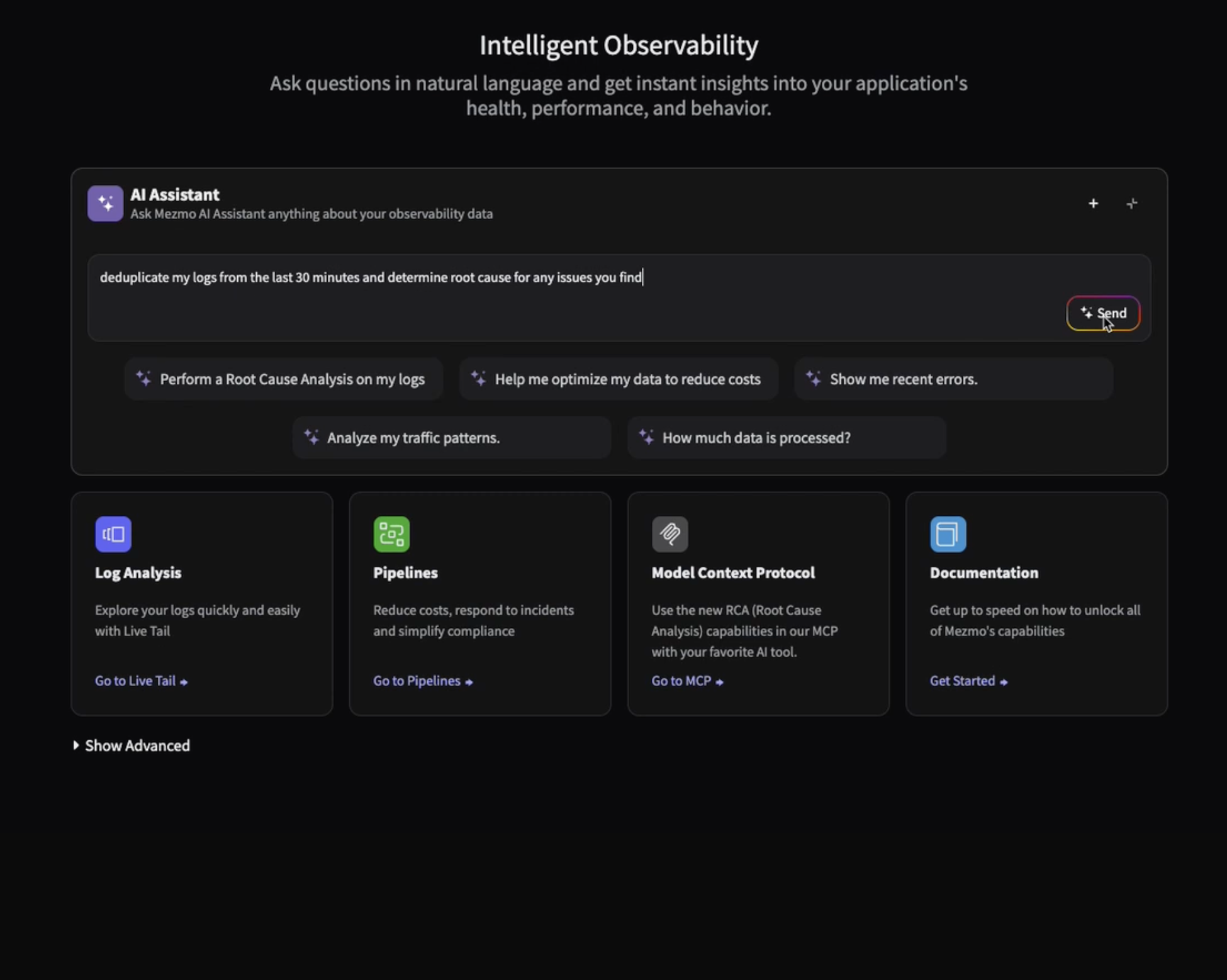
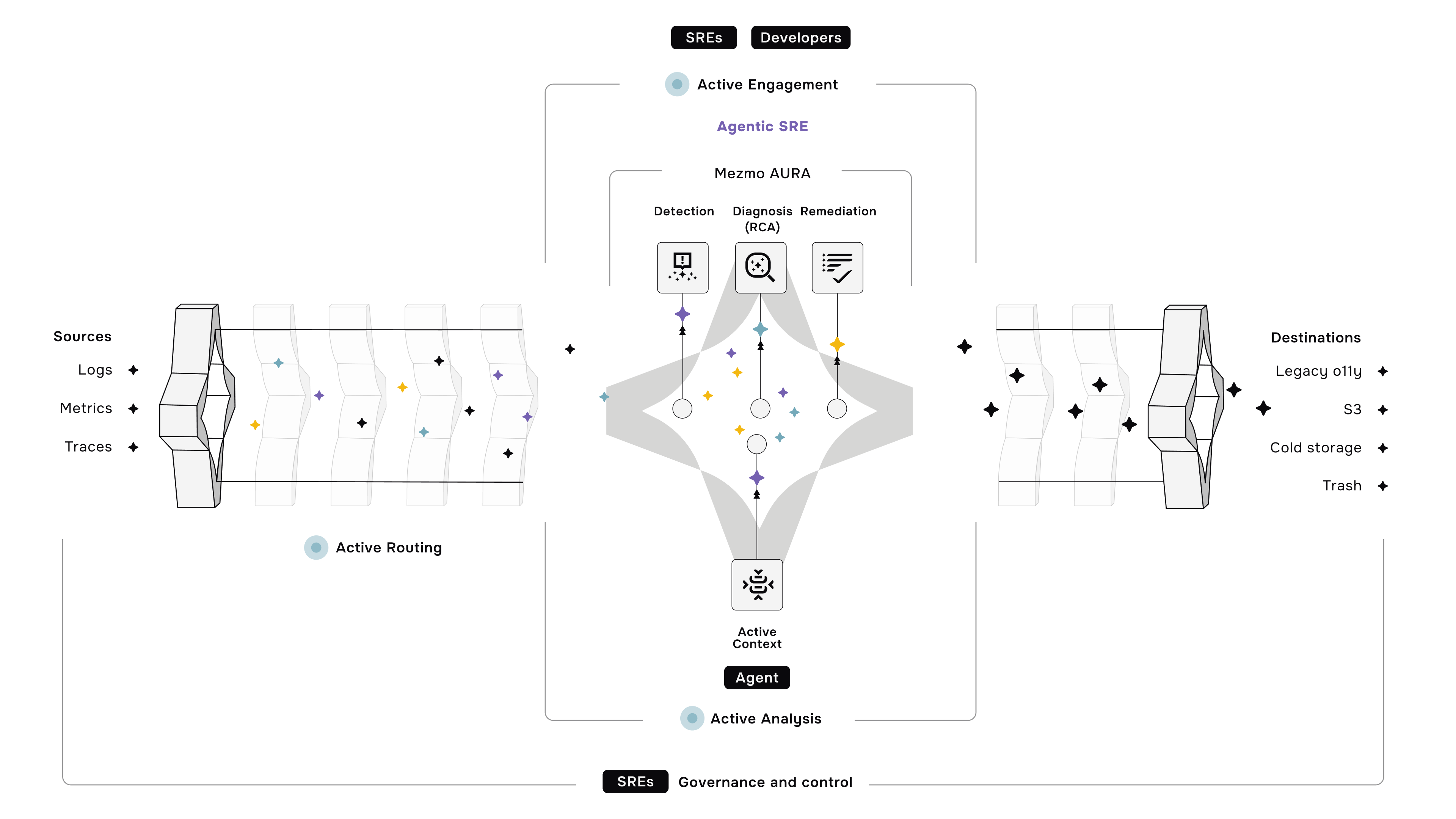






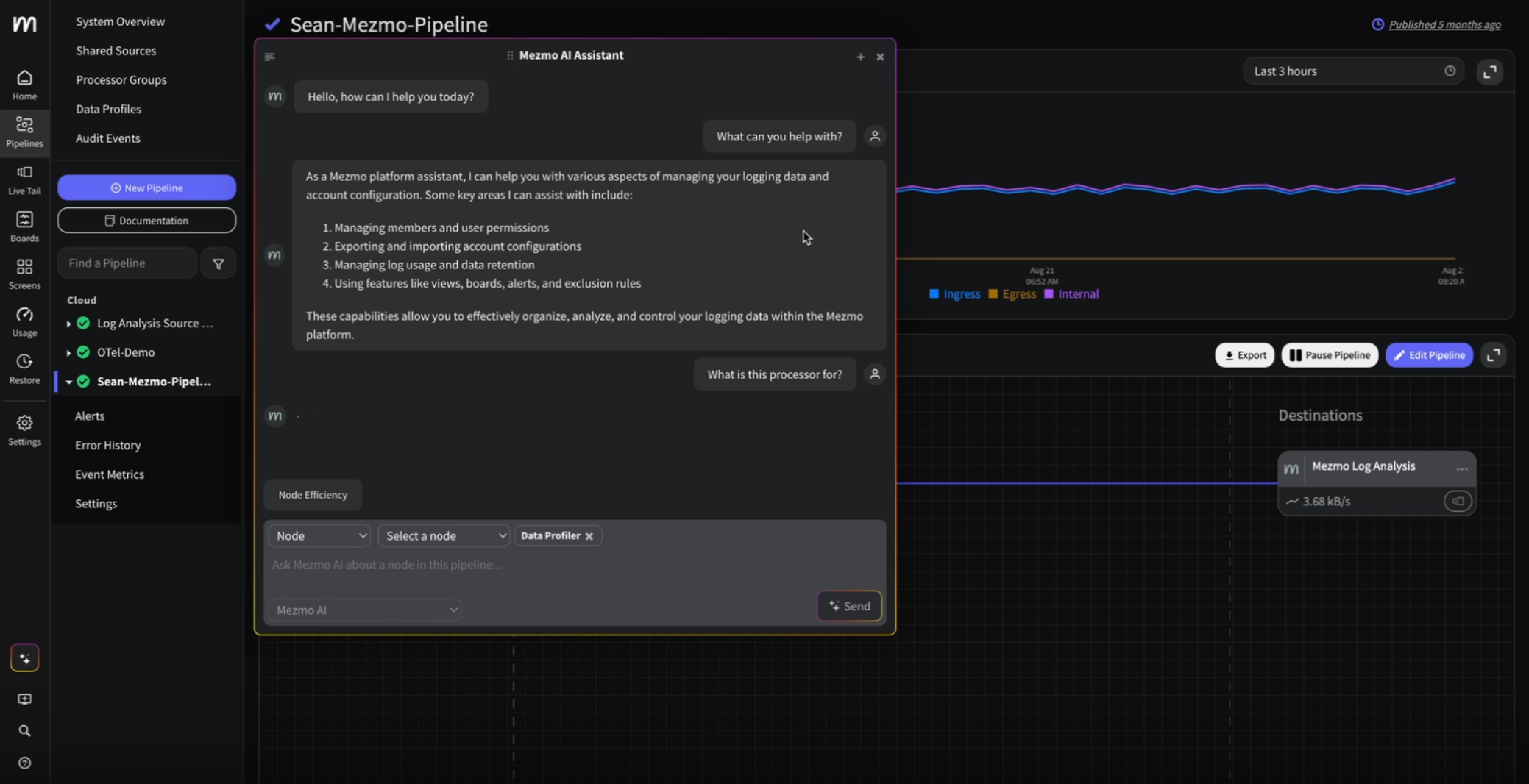
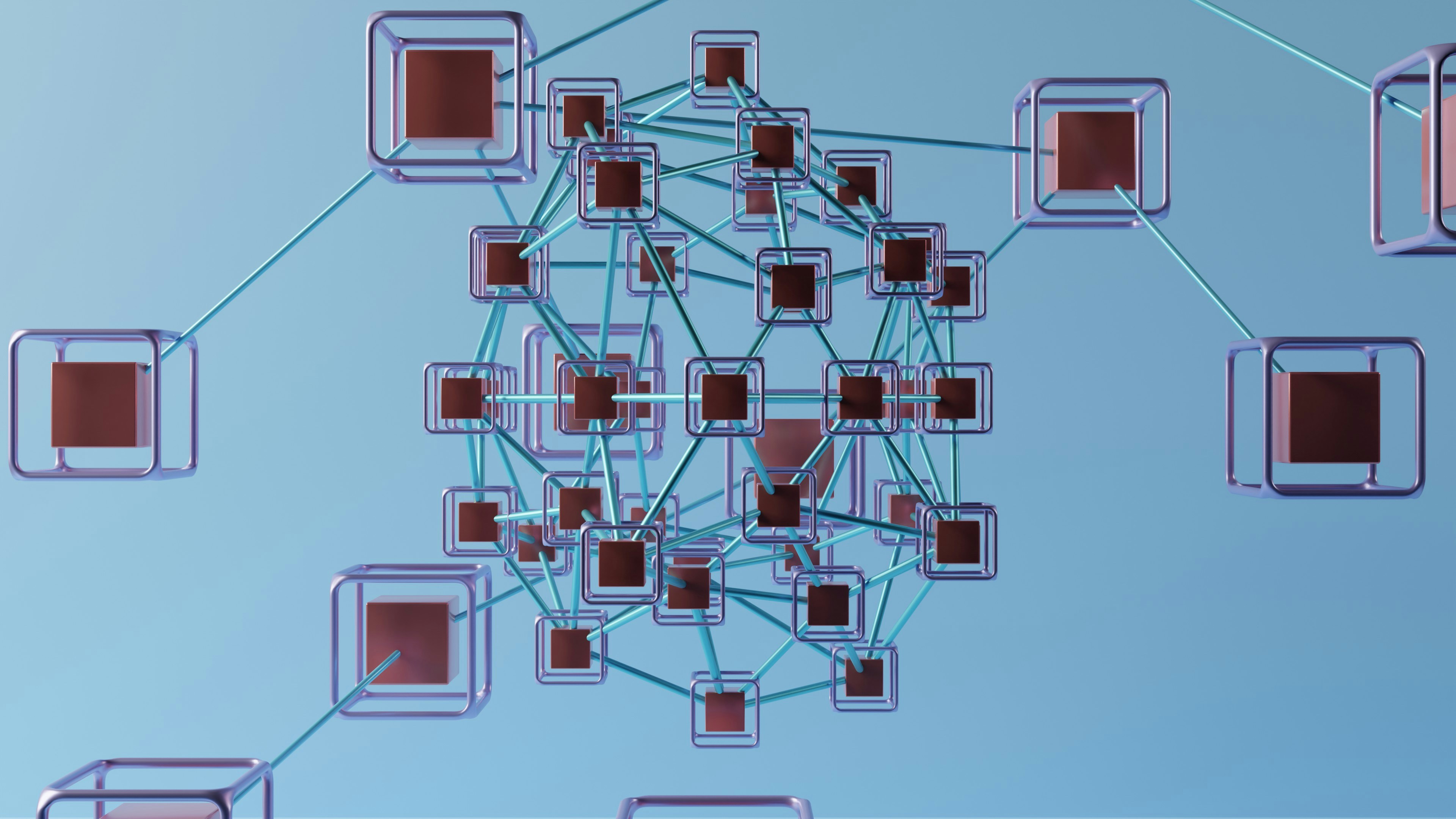

.png)




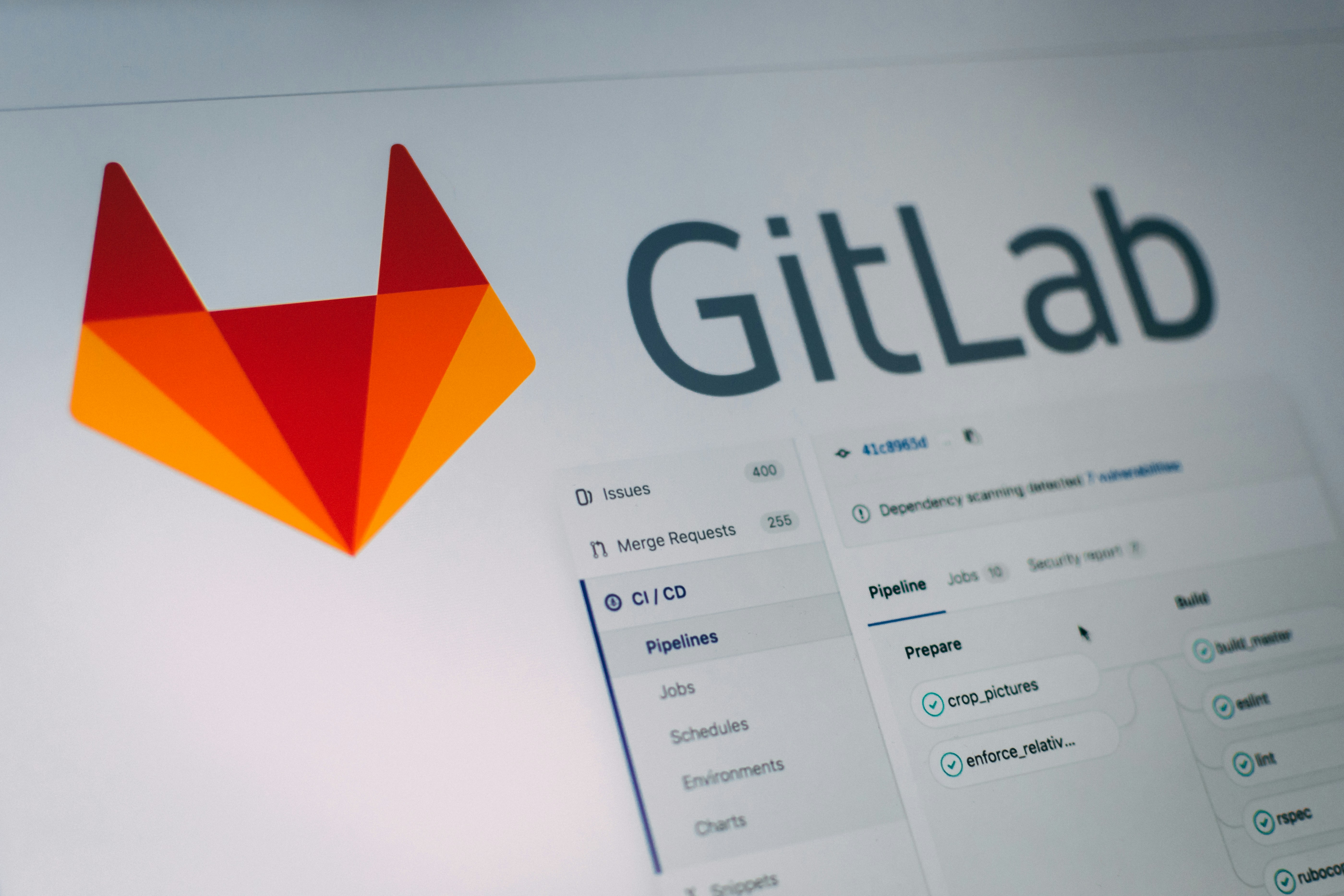
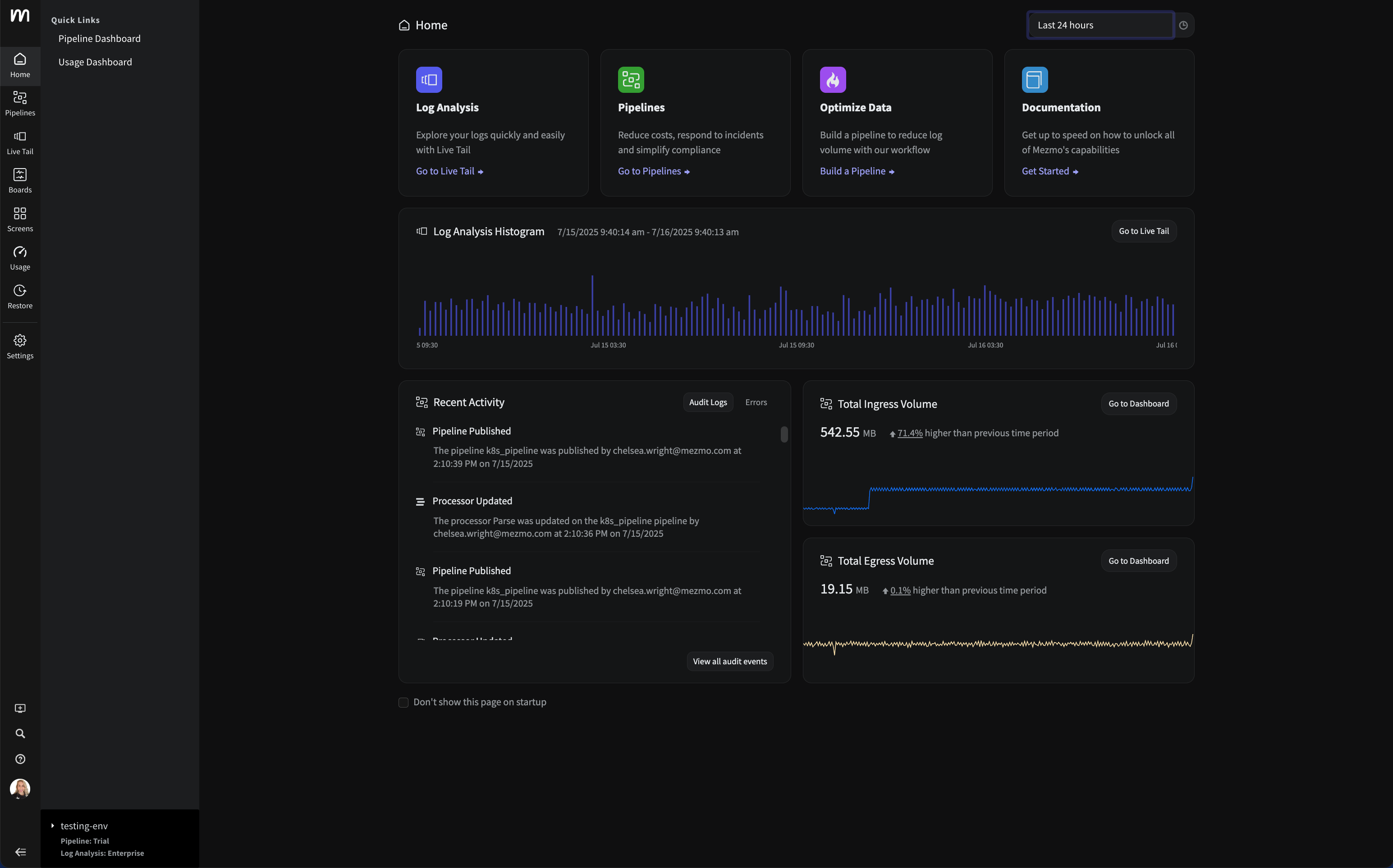


















.png)





























































